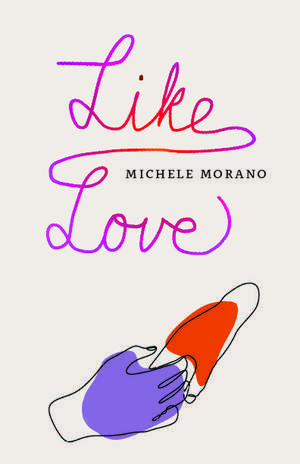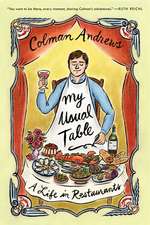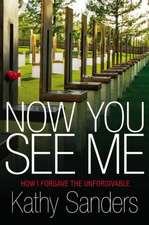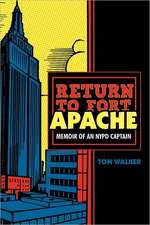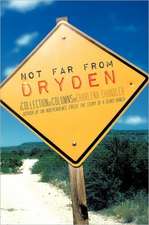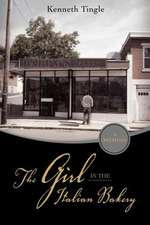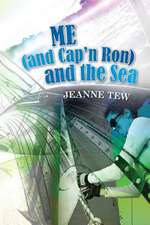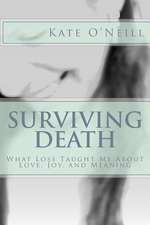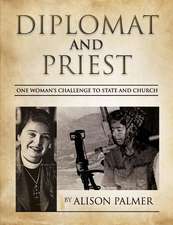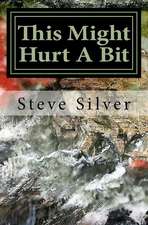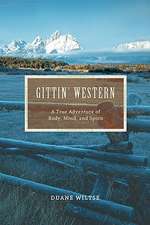Like Love: Machete
Autor Michele Moranoen Limba Engleză Paperback – 25 sep 2020
Crushes. Infatuations. Attractions. Unexpected, inexplicable allure. Entanglements steeped in taboo and disruption. In Like Love, nothing is off limits.
In these remarkable essays, Michele Morano explores the pleasures, possibilities, strangeness, and lessons of unconsummated romance. With insight and imagination, Like Love interweaves poignant, humorous episodes from adulthood with the backstory of a young family’s turbulent breakup. When Morano was an adolescent in blue-collar Poughkeepsie, New York, her mother left her father for a woman in an era when LGBTQ parents were widely viewed as “unfit.” Through the turmoil, adolescent Morano paid attention, tucking away the stories that were shaping her and guiding her understanding of love.
Turning romantic clichés inside out and challenging us to rethink our notions about what it means to love, Like Love tells hard and necessary truths about the importance of desire in growing, traveling, mourning, parenting, and figuring out who you are in the world. With precision and depth, Morano explores what it means to find ourselves in relationships that are not quite—but almost—like love.
Preț: 155.66 lei
Nou
Puncte Express: 233
Preț estimativ în valută:
29.79€ • 30.99$ • 24.97£
29.79€ • 30.99$ • 24.97£
Carte tipărită la comandă
Livrare economică 10-17 martie
Preluare comenzi: 021 569.72.76
Specificații
ISBN-13: 9780814255988
ISBN-10: 0814255981
Pagini: 232
Greutate: 0.29 kg
Ediția:1
Editura: Ohio State University Press
Colecția Mad Creek Books
Seria Machete
ISBN-10: 0814255981
Pagini: 232
Greutate: 0.29 kg
Ediția:1
Editura: Ohio State University Press
Colecția Mad Creek Books
Seria Machete
Recenzii
“From her explanations of the brain’s activity as we fall head over heels for someone, to a breakdown of Shakespeare’s A Midsummer Night’s Dream, Morano makes clear that even though we are all complicit in love and its ensuing chaos, our only obligation is to experience it.”—Destiny O. Birdsong, Bookpage
“Haunting….Every piece reads like a conversation between close friends, sharing their greatest moments of vulnerability and their brightest memories of softness.… Reading this book is a reprieve from any strife, and transports audiences back to the first time they felt the dopamine rush of admiration. Morano’s work is proof that a life spent in love is monumental, worth entire books, worth everything.” —Courtney Eathorne, Booklist
“A prismatic exloration of the complexities and contradictions of close relationships.…A sharp eye, brave intellect, and satisfying writing make this worth a look even for those who don’t usually read essays.” —Kirkus (starred review)
“Like Love is an intimate memoir of the sometimes shifting, sometimes blending borders of infatuation, disenchantment, friendship, and love. Throughout her personal journeys, the always wise and empathetic Morano teaches us how to see—ourselves as well as others.” —Philip Graham
“In this breathtaking memoir-in-essays, Michele Morano illuminates romantic love in its many complex manifestations: romantic friendship, maternal love, the intense desire for contact that isn’t exactly sexual but almost is. Her portrayals of the people who have inspired these feelings are always astute and generous. This daring book expands our notion of what love is.” —Kyoko Mori
“If you have ever loved and lost, and if you can smile, wince, cry, laugh—all at the same time—you're ready for Michele Morano’s brilliant new book about the perplexing forms and evolving definitions of love. And you’re in luck: Michele Morano is a superb writer. Like Love is an essential book for us all.” —Abigail Thomas
“Michele Morano’s essays are funny, insightful, and just gorgeous, but I’m most impressed by her exquisite generosity. She keeps looking, daring herself to ask increasingly gutsier questions. I can’t remember when I last read a book as openhearted as Like Love.” —Ryan Van Meter, author of If You Knew Then What I Know Now
“Haunting….Every piece reads like a conversation between close friends, sharing their greatest moments of vulnerability and their brightest memories of softness.… Reading this book is a reprieve from any strife, and transports audiences back to the first time they felt the dopamine rush of admiration. Morano’s work is proof that a life spent in love is monumental, worth entire books, worth everything.” —Courtney Eathorne, Booklist
“A prismatic exloration of the complexities and contradictions of close relationships.…A sharp eye, brave intellect, and satisfying writing make this worth a look even for those who don’t usually read essays.” —Kirkus (starred review)
“Like Love is an intimate memoir of the sometimes shifting, sometimes blending borders of infatuation, disenchantment, friendship, and love. Throughout her personal journeys, the always wise and empathetic Morano teaches us how to see—ourselves as well as others.” —Philip Graham
“In this breathtaking memoir-in-essays, Michele Morano illuminates romantic love in its many complex manifestations: romantic friendship, maternal love, the intense desire for contact that isn’t exactly sexual but almost is. Her portrayals of the people who have inspired these feelings are always astute and generous. This daring book expands our notion of what love is.” —Kyoko Mori
“If you have ever loved and lost, and if you can smile, wince, cry, laugh—all at the same time—you're ready for Michele Morano’s brilliant new book about the perplexing forms and evolving definitions of love. And you’re in luck: Michele Morano is a superb writer. Like Love is an essential book for us all.” —Abigail Thomas
“Michele Morano’s essays are funny, insightful, and just gorgeous, but I’m most impressed by her exquisite generosity. She keeps looking, daring herself to ask increasingly gutsier questions. I can’t remember when I last read a book as openhearted as Like Love.” —Ryan Van Meter, author of If You Knew Then What I Know Now
Notă biografică
Michele Morano is the author of the travel memoir Grammar Lessons: Translating a Life in Spain. Her essays and short fiction have appeared in many journals and anthologies, including Best American Essays, Fourth Genre, Ninth Letter, and Waveform: Twenty-First-Century Essays by Women. She lives in Chicago, where she chairs the English Department at DePaul University.
Extras
There’s a certain way with certain boys, how they walk, a little lop-sided, leaning into one another, how they grimace when their heads go back, laughing to the sky. While their friends wait in the hall, shoes screeching against the tile floor, these boys pack up slowly, smiling under their bangs. They say, “Have a good afternoon,” and “Looking forward to reading Montaigne,” with no sense of irony. Then they hoist their heavy backpacks over one shoulder, give a quick salute, and are gone.
At a certain age—twelve to fourteen, by fifteen it’s over—these boys are dangerous. Outside during morning break, they sidle up, leaning into me the way they lean into each other, sensing how I love being in the middle of them. One in particular, Eli, takes my hand, adjusts my grip on the Frisbee, cheers when my toss reaches the far birch tree. He likes teaching the teacher.
At academic summer camp, where the overachievers go for fun, boys like Eli talk about literature, about the pieces they’re working on, with an earnestness that throbs.
In the cafeteria at dinnertime, carrying trays piled with tater tots and chocolate pudding, they ask me to settle a bet. What’s “Hills Like White Elephants” really about? Their eyes drop to the floor, feet shift back and forth. At night they come to me in dreams, and in the morning when I step into the classroom and their heads turn toward me, eyes sleepy, I am shy.
Most of the summer writing students want to be in Fiction Workshop. I teach its prerequisite, Personal Narratives, although I have no idea why this course should come first. We read Virginia Woolf, James Baldwin, Joan Didion and talk about developing a literary consciousness. About what it means to tell the truth. About memory and imagination, craft and technique. “But nothing worth writing about has ever happened to me,” they sometimes whine. “The drama is in the way you think,” I insist, and the dangerous boys nod their heads and grin.
We spend most of each day in a small, carpeted class- room: fifteen students, the teaching assistant, and me. We sit around an enormous seminar table where we discuss readings and do writing exercises. Every other day, three students distribute drafts for the whole class to critique, making the close quarters even more intimate. By the end of the first week, it feels like a month has passed.
In the evenings, during study time, I walk through the girls’ dormitory first. The girls are twelve and thirteen and fourteen, too, but they seem older, less vulnerable. They have breasts and long legs, and some are so beautiful it’s hard to look at them, hard to look away. A few apply makeup expertly and braid their hair into intricate pat- terns, but I don’t compliment appearances. Instead I say, “I like the way you think. Push that idea further. Bring it up in class tomorrow so we can all learn from you.”
This pleases the girls, but what they really want to talk about is the boys. They want to know if I’ll tell so-and- so that so-and-so likes him, if I’ll relay dares and threats about tomorrow morning’s four-square match. “Nope,” I reply, “no flirting by proxy,” and the girls fall out laughing, squealing until the RA threatens to write them up.
The next dormitory is quieter. Up and down the halls, boys read and write and goof around silently. I make myself at home, sitting on a chair here, a bed there, and taking what they offer—Twizzlers, Cheetos, Coffee Nips. Eli’s roommate received a care package today, and Eli gives of it freely. He just turned twelve, the youngest in the class, and he sits beside me on the narrow bed— elbows on his knees, hands clasped like some kind of professional—and asks about the college students I teach. What are they like, he wants to know, and what am I reading for pleasure? He shows me a wooden duck his grandfather carved and a bracelet he wove during afternoon activities. He opens his laptop to essay number one. “What do you think of this beginning?” he asks, and I’m not kidding, it’s stunning.
At a certain age—twelve to fourteen, by fifteen it’s over—these boys are dangerous. Outside during morning break, they sidle up, leaning into me the way they lean into each other, sensing how I love being in the middle of them. One in particular, Eli, takes my hand, adjusts my grip on the Frisbee, cheers when my toss reaches the far birch tree. He likes teaching the teacher.
At academic summer camp, where the overachievers go for fun, boys like Eli talk about literature, about the pieces they’re working on, with an earnestness that throbs.
In the cafeteria at dinnertime, carrying trays piled with tater tots and chocolate pudding, they ask me to settle a bet. What’s “Hills Like White Elephants” really about? Their eyes drop to the floor, feet shift back and forth. At night they come to me in dreams, and in the morning when I step into the classroom and their heads turn toward me, eyes sleepy, I am shy.
Most of the summer writing students want to be in Fiction Workshop. I teach its prerequisite, Personal Narratives, although I have no idea why this course should come first. We read Virginia Woolf, James Baldwin, Joan Didion and talk about developing a literary consciousness. About what it means to tell the truth. About memory and imagination, craft and technique. “But nothing worth writing about has ever happened to me,” they sometimes whine. “The drama is in the way you think,” I insist, and the dangerous boys nod their heads and grin.
We spend most of each day in a small, carpeted class- room: fifteen students, the teaching assistant, and me. We sit around an enormous seminar table where we discuss readings and do writing exercises. Every other day, three students distribute drafts for the whole class to critique, making the close quarters even more intimate. By the end of the first week, it feels like a month has passed.
In the evenings, during study time, I walk through the girls’ dormitory first. The girls are twelve and thirteen and fourteen, too, but they seem older, less vulnerable. They have breasts and long legs, and some are so beautiful it’s hard to look at them, hard to look away. A few apply makeup expertly and braid their hair into intricate pat- terns, but I don’t compliment appearances. Instead I say, “I like the way you think. Push that idea further. Bring it up in class tomorrow so we can all learn from you.”
This pleases the girls, but what they really want to talk about is the boys. They want to know if I’ll tell so-and- so that so-and-so likes him, if I’ll relay dares and threats about tomorrow morning’s four-square match. “Nope,” I reply, “no flirting by proxy,” and the girls fall out laughing, squealing until the RA threatens to write them up.
The next dormitory is quieter. Up and down the halls, boys read and write and goof around silently. I make myself at home, sitting on a chair here, a bed there, and taking what they offer—Twizzlers, Cheetos, Coffee Nips. Eli’s roommate received a care package today, and Eli gives of it freely. He just turned twelve, the youngest in the class, and he sits beside me on the narrow bed— elbows on his knees, hands clasped like some kind of professional—and asks about the college students I teach. What are they like, he wants to know, and what am I reading for pleasure? He shows me a wooden duck his grandfather carved and a bracelet he wove during afternoon activities. He opens his laptop to essay number one. “What do you think of this beginning?” he asks, and I’m not kidding, it’s stunning.
Cuprins
Contents
The Law of Definite Proportions
Breaking and Entering
Crushed
About Wayne
Ars Romantica (Or a Dozen Ways of Looking at Love)
Boy Crazy
Like Love
Evenings at the Collegeview Diner
How to Tell a True Love Story
Restless
All the Power This Charm Doth Owe
Backstitch
My Sky, My Life
The Married Kiss
Acknowledgments
The Law of Definite Proportions
Breaking and Entering
Crushed
About Wayne
Ars Romantica (Or a Dozen Ways of Looking at Love)
Boy Crazy
Like Love
Evenings at the Collegeview Diner
How to Tell a True Love Story
Restless
All the Power This Charm Doth Owe
Backstitch
My Sky, My Life
The Married Kiss
Acknowledgments
Descriere
Turns romance clichés inside out while poignantly and insightfully exploring the pleasures, possibilities, and lessons of unconsummated love.
